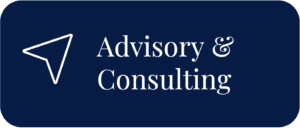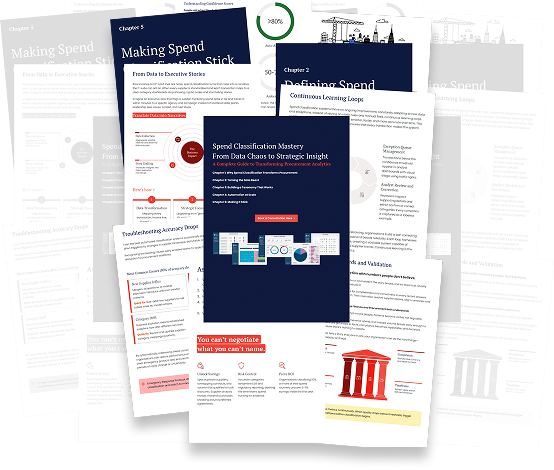Welcome to Part 2 of our exploration into Strategic Sourcing Strategies. Having laid the groundwork by defining strategic sourcing and its key components in Part 1, we now turn our focus to the invaluable contributions of procurement consultants.
In this segment, we will explore how these experts apply their deep market insights and analytical prowess to enhance strategic sourcing efforts. Additionally, we’ll tackle common challenges within strategic sourcing and discuss forward-looking trends that are reshaping the procurement landscape. Join us as we continue to navigate the complex yet rewarding world of strategic sourcing, armed with expert insights and actionable strategies.
Enter the Big Debate: Where Does Strategic Sourcing Start & End?

The debate surrounding the boundaries of strategic sourcing is an intriguing one, with diverse perspectives on when it transitions from procurement to category management and then sourcing. Traditionally, as illustrated by the green segments strategic sourcing is often viewed as encompassing a specific set of phases: from Opportunity Analysis to Supplier Relationship Management.
Opportunity Analysis marks the beginning of strategic sourcing, focusing on internal assessment to identify potential cost savings and efficiency gains. Here, it’s largely about recognising where procurement can strategically impact the broader business objectives.
Market Analysis and Strategy Development are the areas where strategic sourcing blends into category management. Category management takes a more granular look at the market and supplier capabilities to develop strategies for each specific category of spend, factoring in market dynamics and business needs.
Market Engagement to Supplier Relationship Management represents the execution phase of strategic sourcing. This is where the rubber meets the road in terms of interacting with suppliers, negotiating contracts, and managing ongoing supplier performance.
Finally, Strategy Refresh serves as the bridge that connects strategic sourcing with continuous improvement and innovation within procurement. It questions and revises sourcing strategies to ensure they remain relevant and aligned with evolving business and market conditions.
Is Strategic Sourcing Just One Part of the Cycle?
The dynamic nature of business requires procurement to be agile, strategic, and category-focused, making the distinctions less clear-cut. While some argue that strategic sourcing is just one part of the procurement cycle, others contend it is an overarching philosophy that informs all procurement activities, from category management to the tactical purchasing process. This ongoing debate reflects the evolving nature of procurement and the increasing importance of strategic sourcing as a key driver of value in the sourcing process.
Navigating this Procurement landscape requires not only a comprehensive understanding of procurement’s scope but also the expertise to apply this knowledge effectively in a business context. Herein lies the critical intersection where procurement consultants become invaluable.
The Role of Procurement Consultants
Procurement consultants play a pivotal role in enhancing and executing strategic sourcing strategies. Their expertise and value are rooted in their deep understanding of market dynamics, advanced analytical skills, and extensive experience across various industries.
- Expertise in Strategic Sourcing: Procurement consultants bring specialised knowledge that complements internal capabilities, especially in complex categories or where in-house expertise is limited. They are adept at conducting thorough market and opportunity analyses, which are crucial for identifying cost-saving opportunities and optimising supply chain operations. By applying rigorous methodologies to analyse spending patterns and supplier capabilities, consultants help s uncover inefficiencies and devise effective sourcing strategies (Gottfredson, Puryear, & Phillips, 2005).
- Spend Analytics and Opportunity Analysis: Procurement consultants excel in spend analytics, a process crucial for understanding where and how a company’s money is spent. By dissecting spending data, consultants identify patterns, trends, and anomalies that reveal cost-saving opportunities and areas requiring efficiency improvements. This detailed analysis informs opportunity analysis, where consultants assess potential avenues for strategic improvements within the procurement process. They help prioritise these opportunities based on potential impact, aligning them with the ‘s strategy and goals.
- Value to Business Strategy: The value of procurement consultants extends beyond simple cost reduction. They provide strategic insights that align procurement processes with overall business objectives, thereby ensuring that sourcing strategies contribute to long-term competitive advantages. Consultants often facilitate market engagement by leveraging their networks to connect businesses with the best suppliers, thereby enhancing the quality and reliability of the supply chain.
- Implementation and Negotiation Skills: Procurement consultants are instrumental in strategy development and implementation. They guide businesses through the complex negotiation process, ensuring that contracts are not only cost-effective but also flexible to adapt to future business changes and market conditions. Their expertise in contract negotiation and implementation is crucial for establishing solid foundations for supplier relationships and for ensuring compliance with agreed terms.
- Continuous Improvement and Adaptation: The dynamic nature of markets demands continuous adaptation of sourcing strategies. Consultants play a crucial role in the strategy refresh component, helping businesses stay ahead of market trends and regulatory changes. They assist in regularly updating sourcing strategies, incorporating new technologies, and methodologies to enhance procurement functions (Formentinia et al.).
- Focus on Core Competencies: Procurement consultants bring a focused approach to strategic sourcing, allowing internal teams to concentrate on their core business activities. By taking over the complex and time-consuming tasks of market analysis, supplier evaluation, and negotiation, consultants help organizations allocate their internal resources more efficiently. This focused expertise in procurement processes ensures that decisions are made swiftly and based on the latest market insights, thereby enhancing operational efficiency and effectiveness.
- Capacity Building: Consultants significantly enhance the capacity of procurement departments by introducing advanced tools, processes, and expertise that might not be internally available. This capacity building is crucial for organizations looking to scale their operations or manage growth without compromising on the quality or effectiveness of their procurement functions. By training internal teams and implementing best practices, consultants empower organizations with the skills and tools necessary to sustain and expand their strategic sourcing efforts independently over time.
Common Challenges in Strategic Sourcing & How Procurement Consultants Can Help
Strategic sourcing, while crucial for optimising procurement processes and enhancing al efficiency, poses several common challenges that businesses frequently encounter:
|
Challenge |
Description |
How Consultants Can Help |
|
Managing the risks associated with suppliers, including financial instability, geopolitical tensions, and supply chain disruptions, can be complex and demanding. |
Consultants can implement comprehensive risk assessment tools and conduct regular audits to evaluate the financial health, performance, and compliance of suppliers. They guide businesses in developing contingency plans and diversifying their supplier base to mitigate risks associated with supply chain dependencies. |
|
|
Adapting to Market Changes |
Rapid market dynamics, such as fluctuating commodity prices, changing regulatory environments, and technological advancements, require agile and responsive sourcing strategies. |
Consultants help stay agile by providing market intelligence and forecasting tools that anticipate market movements. They advise on adaptive sourcing strategies that can quickly respond to market conditions, ensuring that procurement processes remain efficient and cost-effective. |
|
Ensuring Quality and Compliance |
Maintaining high quality and compliance with industry standards and regulations while managing costs is a persistent challenge. |
By setting up stringent quality control systems and regular compliance checks, consultants ensure that all procurement activities adhere to the necessary standards. They also train internal teams to manage quality and compliance effectively. |
|
Integrating New Technologies |
Keeping up with and integrating new technologies into the procurement process to enhance efficiency and competitiveness can be daunting for many organisations. |
Consultants assess the technological needs of an and recommend appropriate digital solutions like AI, machine learning, and blockchain for procurement. They support the implementation of these technologies, ensuring they align with existing systems and processes. |
|
Building Strong Supplier Relationships |
Developing and maintaining strong, mutually beneficial relationships with suppliers that can foster innovation and strategic value is not straightforward. |
Procurement consultants foster strong supplier relationships through strategic negotiation and relationship management training. They help create frameworks for collaboration and innovation sharing, ensuring that suppliers are integrated into the strategic vision of the organisation. |
Future Trends in Strategic Sourcing
Strategic sourcing is continually evolving, influenced by technological advancements, environmental considerations, and global economic dynamics.
Emerging Trends:
- Integration of AI: Artificial Intelligence (AI) and machine learning are revolutionising strategic sourcing by automating complex processes, from spend analysis to supplier selection and contract management. These technologies offer predictive insights, enhance decision-making, and improve efficiency by minimising manual tasks.
- Sustainability in Sourcing: There is a growing emphasis on sustainability within procurement practices. Companies are increasingly expected to ensure their supply chains are environmentally friendly and ethically sound. This trend is driven by both regulatory requirements and consumer demand for responsible business practices.
- Globalisation of Supply Chains: The expansion of global markets requires sourcing strategies that are not only cost-effective but also resilient to geopolitical and economic uncertainties. Diversifying supply sources and developing risk mitigation strategies are crucial in managing this complexity.
Preparing for Change:
To adapt to these trends, businesses should consider the following strategies:
- Leverage Technology: Invest in AI and machine learning solutions to streamline sourcing processes and enhance data-driven decision-making. This technology can help identify patterns and insights that would be unattainable with manual analysis alone.
- Embrace Sustainability: Develop sourcing policies that prioritize sustainability. This involves selecting suppliers who adhere to environmental and social standards and integrating sustainability criteria into the supplier evaluation process.
- Enhance Global Operations: Build a global perspective into the sourcing strategy. This includes understanding international market dynamics, regulatory environments, and cultural nuances. Training procurement teams in global procurement strategies and cultural competence is vital.
- Continuous Learning and Adaptation: Encourage ongoing education and training for procurement teams to keep up with new technologies and market trends. This proactive approach ensures the organisation remains agile and responsive to changes in the sourcing landscape.
Comprara Procurement Maturity Assessment with Added AI Dimension:
To navigate these trends effectively, you can using the Comprara Procurement Maturity Assessment, now enhanced with an AI dimension. This tool evaluates your procurement function across defined stages, aiming for strategic, value-driven operations. It identifies your current maturity level and the level you should aim to achieve based on industry benchmarks. The assessment not only uncovers opportunities for progress and growth but also creates a compelling business case for strategic advancements in your procurement practices. By understanding where you stand and where you need to go, you can make informed decisions that drive significant improvements in your strategic sourcing efforts.
In conclusion, strategic sourcing is not merely a lever in the complex machinery of commerce; it is the fulcrum on which businesses balance the weight of their aspirations against the realities of the market. As Archimedes famously said, “Give me a place to stand, and I will move the earth.” In much the same way, strategic sourcing offers companies a solid ground on which to stand—a platform from which they can leverage detailed evaluations and long-term supplier partnerships to push their competitive advantage ever upward.
This is more than simple price reduction. It’s a reaching into the total cost of ownership that includes not only financial expenditures but also factors like delivery logistics, product quality, and post-purchase service. It enables firms to fine-tune their operations, aligning the supply base so precisely with business strategies that the entire organisation becomes more responsive to market dynamics and primed for innovation.
Moreover, strategic sourcing embeds a rigorous risk management framework within procurement processes, identifying potential supply chain disruptions and crafting strategies to mitigate these risks.
It is this visionary approach to procurement that not only sustains businesses but also drives them toward a future where they are not just participants but leaders in their industries.










